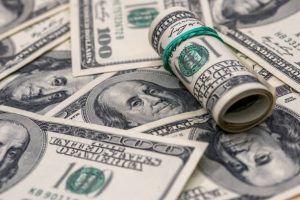
Most Asian currencies rose sharply on Thursday, while the dollar sank to a nine-month low even after the Federal Reserve hiked interest rates, with markets betting that a U.S. economic slowdown will force the bank into reversing its hawkish stance this year. The Chinese yuan rose 0.4% and came close to a seven-month high against the dollar, while risk-heavy Southeast Asian currencies marked the biggest gains. The Philippine peso added nearly 1%, while the Malaysian ringgit and the Indonesian rupiah jumped 0.7% each. The Japanese yen rose 0.3% and traded near a nine-month high to the dollar, even as recent data pointed to more pressure on the Japanese economy. The Fed hiked interest rates as expected, and said that it plans to keep raising interest rates to curb elevated inflation. Fed Chair Jerome Powell also expressed uncertainty over where interest rates will peak. But the bank’s commitment to keep raising interest rates ramped up expectations for a U.S. economic slowdown this year, which in turn spurred bets that the Fed could begin cutting interest rates by as soon as the second half of 2023. This notion battered the dollar, with the dollar index and dollar index futures falling 0.3% on Thursday.

The Two instruments Had Plummeted Over 1% After The Fed’s Announcement.
and were trading at their weakest levels since April 2022. Markets are now awaiting January’s nonfarm payrolls report, due on Friday, to look for more signs of cooling in the jobs market. Asian currencies stand to benefit from a pivot by the Fed, given that it will widen the gap between risky and low-risk debt yields. The South Korean won rose 0.2% as CPI inflation for January read higher than expected. While the reading is likely to invite more interest rate hikes by the central bank, it also heralds increased pressure on the South Korean economy, which is already reeling from a drastic slowdown in foreign trade. The Australian dollar rose 0.1% as data showed a large bounce in building approvals in December, given that the Reserve Bank did not enact a rate hike during the month. But the bounce may be temporary, as high inflation in the country is likely to invite more monetary tightening. Elsewhere, the euro and the pound advanced against the dollar ahead of widely expected interest rate hikes by the European Central Bank and the Bank of England.









